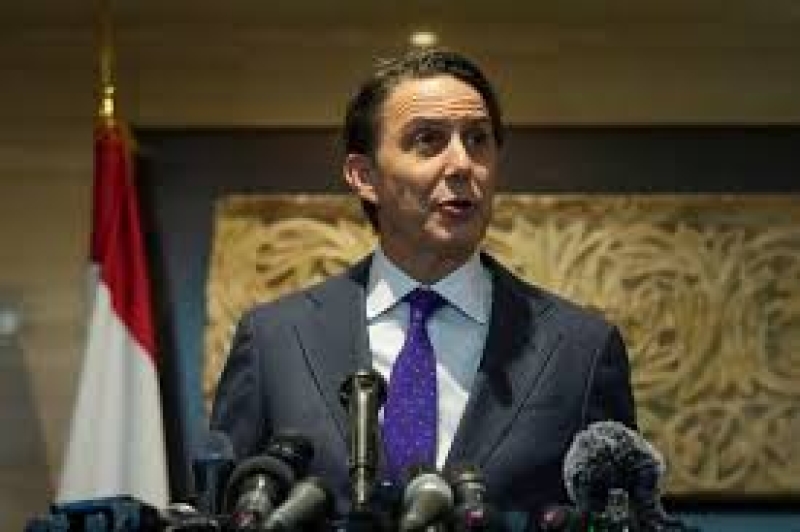- UNGA urges renewed int’l efforts for a resolution of Rohingya crisis |
- First National AI Readiness Assessment Report Published |
- China calls for implementation roadmap for new finance goal |
- New gas reserve found in old well at Sylhet Kailashtila field |
- Revenue earnings shortfall widens in October |
Ceasefire in Israel-Hezbollah Conflict Within Reach: US Envoy

US Special Envoy Amos Hochstein
US Special Envoy Amos Hochstein expressed optimism Tuesday in Beirut, stating that a resolution to the Israel-Hezbollah conflict was "within our grasp." Hochstein's remarks came after meetings with Lebanese officials to discuss a truce plan, which has received broad support within Lebanon.
The United States and France have led efforts to broker a ceasefire, following an intensification of fighting in late September. The war, which began nearly a year ago, escalated after Hezbollah’s involvement alongside Hamas in the conflict, and Israel subsequently widened its military operations into southern Lebanon.
Hochstein met with Lebanese Prime Minister Najib Mikati, army chief Joseph Aoun, and Hezbollah-aligned parliament speaker Nabih Berri, who has played a key role in mediating the truce. After the meeting, Hochstein told reporters that he believed a breakthrough was close, though the final decision rested with the involved parties. “I'm here to facilitate that decision, but it's ultimately up to them... We are now very close to achieving this,” he said.
Berri, speaking to Asharq al-Awsat, described the situation as "positive in principle," but added that there were still "some technical details" to resolve before an agreement could be finalized.
A Lebanese diplomat, speaking on condition of anonymity, confirmed that progress had been made, with Lebanese officials offering a "very positive view" of the truce plan.
However, Israeli Prime Minister Benjamin Netanyahu emphasized that Israel would continue operations against Hezbollah even if a ceasefire were reached. "We must ensure our security in the north of Israel, and we will continue systematic operations against Hezbollah's attacks," Netanyahu stated.
The Human Toll
The conflict, ignited by Hezbollah's cross-border attacks in support of Hamas following the October 7 assault on Israel, has caused devastating loss of life. Over 43,000 people have died in Gaza, with the majority being civilians. In Israel, the October 7 attacks claimed 1,206 lives. Hezbollah's continued missile and rocket launches into Israel have further exacerbated the violence, and Israel's extensive bombing campaigns in Lebanon have killed over 3,500 people, including more than 200 children.
In a new development on Tuesday, Israeli forces reported that one soldier was killed and three others injured during operations in southern Lebanon. Additionally, Lebanon’s army announced that three of its soldiers were killed when Israeli artillery struck their position.
Hezbollah, for its part, launched missiles at Israeli forces in southern Lebanon, claiming to have inflicted casualties. On the Israeli side, around 40 projectiles were fired into the north and central regions, lightly wounding four individuals.
UN and International Efforts
The United Nations Interim Force in Lebanon (UNIFIL) has reported that its peacekeepers were also targeted, with several wounded by rocket fire. The UN and international community have called for adherence to UN Security Council Resolution 1701, which ended the previous Hezbollah-Israel war in 2006. This resolution mandates that only Lebanese and UN peacekeepers be stationed in southern Lebanon—an area currently dominated by Hezbollah.
A potential agreement could see Lebanon deploying troops in the south under a 60-day truce, following a joint statement by the United States and France.
Skepticism Over Ceasefire Prospects
Despite the cautious optimism, some analysts remain skeptical. Eyal Pinko, a retired Israeli navy commander, warned that any truce would require significant concessions, particularly ensuring Hezbollah does not maintain a presence close to Israel's border. "Iran and Hezbollah are unlikely to accept such conditions," Pinko noted, adding that Israel’s security concerns may continue to drive military operations, even in the event of a ceasefire.

